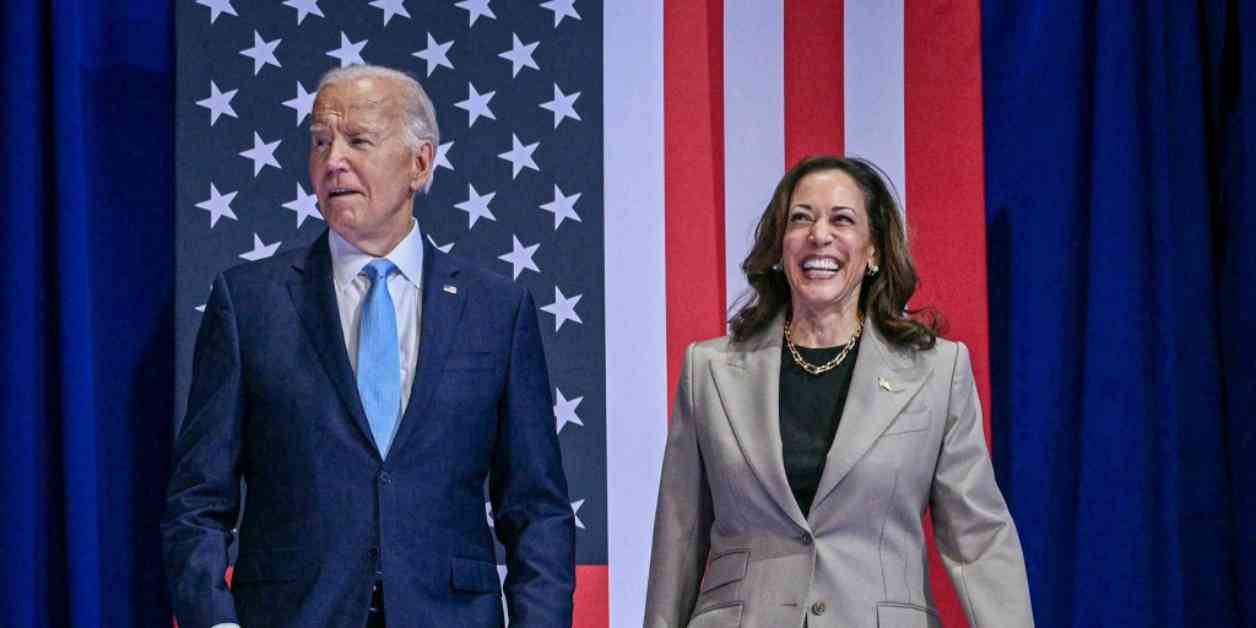White House Clarifies Biden and Harris Were Not Invited to Arlington Cemetery by Families of Fallen Service Members
Gold Star families did not invite President Joe Biden and Vice President Kamala Harris to Arlington National Cemetery last week to commemorate the third anniversary of the attack at Abbey Gate in Afghanistan, a White House official and a Harris aide told NBC News. This clarification comes in response to claims made by GOP Sen. Tom Cotton and former Rep. Tulsi Gabbard, who suggested that the families had extended invitations to Biden and Harris but were ignored.
The controversy surrounding President Biden and Vice President Harris’s absence at Arlington National Cemetery stems from former President Donald Trump’s recent visit to the site. Trump faced criticism for posing for photos with Gold Star families in a section of the cemetery where photography is traditionally prohibited. The White House National Security Council spokesman, John Kirby, stated that Trump’s visit was a “personal invitation by families.” He emphasized the importance of providing ongoing support to the families of fallen and injured service members, regardless of public attention or media coverage.
During Trump’s visit, an incident occurred in which a member of his campaign staff allegedly pushed aside a cemetery staff member who sought to enforce restrictions on taking photos and videos at the location. Senator Cotton and former Rep. Gabbard both referenced this incident in their comments, suggesting that Biden and Harris should have been present at the cemetery to show support for the families of the fallen service members.
Cotton claimed to have spoken to Kelly Barnett and Darin Hoover, parents of Marine Staff Sgt. Darin Taylor Hoover, who died in Afghanistan three years ago. However, he did not specify whether these were the family members who allegedly invited Biden and Harris. Gabbard echoed Cotton’s sentiments, stating that she had heard that Biden and Harris were invited by some family members but did not respond to the invitations.
In response to the criticism, Trump defended the photos and videos taken during his visit to Arlington National Cemetery. He explained that a Gold Star family had requested a photo at their loved one’s grave, and he had agreed to the request. Trump’s campaign posted a video of the ceremony on TikTok, and Trump campaign co-manager Chris LaCivita shared a video of Trump laying flowers at a grave. Trump emphasized that he did not initiate the photo opportunity but had agreed to it at the family’s request.
Following Trump’s visit, a rally in Pennsylvania, and social media posts defending his actions, Gold Star families released a statement expressing their support for Trump and condemning Harris’s attempts to politicize the visit. The families stated that they had invited Trump to attend the ceremonies commemorating the anniversary of their children’s deaths and that he had shown them respect and honor during his visit.
In response to the Gold Star families’ statement, Harris criticized Trump for “disrespecting sacred ground” at Arlington National Cemetery. She accused him of using the visit for political purposes and claimed that he had not shown proper respect for the solemnity of the occasion. The back-and-forth between the Trump campaign, Harris, and the Gold Star families has sparked a contentious debate over the role of politicians in commemorating the sacrifices of service members.
The controversy surrounding Biden and Harris’s absence at the cemetery has reignited discussions about the responsibilities of elected officials in honoring the sacrifices of military personnel and their families. While some have criticized the current administration for not attending the commemoration at Arlington National Cemetery, others have defended Biden and Harris’s decision to prioritize other commitments.
Analysis of the Situation
At the heart of the controversy surrounding Biden and Harris’s absence from Arlington National Cemetery is the question of political responsibility and moral duty. While politicians are often expected to pay respects to fallen service members and their families, the nature of these interactions can vary widely. Some argue that attending ceremonies at military cemeteries is a crucial part of honoring the sacrifices made by service members, while others point to the need for politicians to provide ongoing support and care for the families of the fallen.
The conflicting narratives presented by Senator Cotton, former Rep. Gabbard, and the White House highlight the complexity of these issues. Cotton and Gabbard’s claims that the families of fallen service members invited Biden and Harris but were ignored suggest a lack of empathy and understanding on the part of the current administration. However, the White House’s assertion that no formal invitations were extended to the President and Vice President raises questions about the accuracy of these claims.
Impact on Gold Star Families
The controversy surrounding Biden and Harris’s absence at Arlington National Cemetery has had a significant impact on Gold Star families. The families of fallen service members have been thrust into the spotlight as their interactions with politicians are scrutinized and debated. The conflicting narratives presented by different parties have added to the families’ burden, forcing them to defend their actions and intentions in inviting or not inviting political figures to commemorate their loved ones.
The Gold Star families’ statement in support of Trump and condemnation of Harris’s remarks reflects the emotional toll that this controversy has taken on them. By publicly aligning themselves with one political figure and criticizing another, the families risk becoming pawns in a larger political game. Their grief and loss are being politicized and weaponized for partisan purposes, further complicating an already sensitive and painful situation.
Lessons Learned and Moving Forward
As the controversy surrounding Biden and Harris’s absence at Arlington National Cemetery continues to unfold, there are several important lessons to be learned. First and foremost, the need for politicians to approach interactions with Gold Star families with sensitivity, empathy, and humility cannot be overstated. These families have made the ultimate sacrifice for their country, and their experiences should be treated with the utmost respect and care.
Additionally, the role of politicians in commemorating the sacrifices of service members should be carefully considered. While attending ceremonies at military cemeteries can be a meaningful gesture, it is essential that these interactions are conducted with the families’ wishes and needs in mind. Politicians must prioritize the well-being and comfort of the families of fallen service members above all else, ensuring that their actions are guided by compassion and respect.
In conclusion, the controversy surrounding Biden and Harris’s absence at Arlington National Cemetery serves as a reminder of the complexities and challenges of honoring the sacrifices of military personnel and their families. As the debate continues, it is essential that all parties involved approach the situation with empathy, understanding, and a commitment to supporting those who have lost loved ones in service to their country. Only by prioritizing the needs and wishes of Gold Star families can politicians truly honor the sacrifices made by these brave individuals.



























